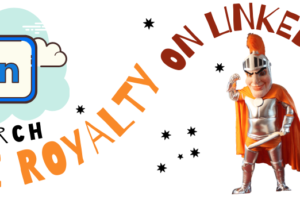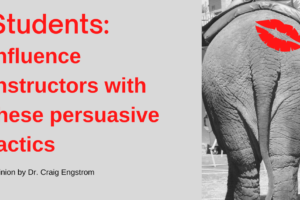Admittedly, the list of courses feels incomplete to me. How can I narrow a list of recommended courses to just three? When it comes to educating oneself, more learning is usually better. However, after reflecting on this post during 100+ miles of cycling (follow me on Strava), I have homed in on three courses that I’d recommend based on the following praxeological criteria: 1. practical and 2. universal utility value. I mean practical in the most definitional sense: “… of or concerned with the actual doing or use of something rather than with theory and ideas.” By universal utility value, I mean it provides a positive, useful outcome for most people.
I could list 50+ college or non-college courses with a good ROI. But by solely choosing three, I’m more likely to retain readers. Feel free, though, to tell me why I am wrong in the comments and name your top three course recommendations. Or, tell me how right I am and how you’ve used one of the courses in your personal or professional life. Let’s start a conversation.
Advanced Public Speaking
Billionaire Warren Buffett claims that “mastering the art of public speaking is the single greatest skill to boost your career” (Gallo, 2017). Many colleges and universities require public speaking as part of the core curriculum requirements — sometimes called general education. This introductory course should cover the fundamentals of public speaking, like developing a topic, researching a topic, outlining, writing, and delivering informative speeches. However, these courses often have too many students in a single section. They may also be taught by graduate teaching assistants who haven’t yet mastered or embraced a competency-based teaching style.
A higher-level advanced public speaking course or speech writing course will have lower enrollment numbers and likely be taught by a senior-level instructor, which will make it practical. This course will also develop persuasive speeches and use advanced techniques, such as stylistic elements and performed delivery. As noted by Buffett, these skills have the most significant utility.
Of course, we must assume that this course — as with all courses in this list — is taught by an effective, student-centered instructor. If you get a shitty instructor, you’ll unfortunately not learn as much or improve your skills as greatly as you would with a quality instructor.
Financial Accounting
Whether you plan to start your own business or just need to track your personal expenses, knowing double-entry accounting, preparing and reading financial statements, and preparing a 1040 tax form will pay dividends forever.
As a small business owner, I save thousands of dollars annually because I can prepare financial statements and tax documents. I probably paid somewhere in the ballpark of $900 for a financial accounting course, which means at least an ROI of 3,555% over the past two decades. I’ve also been able to provide limited financial advice to my clients and employers over the years. The utility of this course personally and professionally for everyone is therefore obvious.
There are many worthwhile accounting courses worth considering; however, financial accounting is the one that will give anyone in management-level roles enough knowledge to read a financial statement, prepare budgets, and make strategic decisions. Financial accounting is a course that requires learning manual entries and doing calculations as part of the homework and exams, which makes it practical.
Multicultural ‘X’
We live in a global and multicultural world. This means you will be engaging with people who have different behaviors, beliefs, attitudes, and values from you. Learning how to observe the world from different perspectives, actively listening to others, and empathizing with others — popularly referred to as cultural competence and emotional intelligence capabilities — will serve you will in your personal life and career. At the very least, you will avoid becoming a Karen, mansplaining, or getting me-too’ed. Knowing how to competently navigate interactions with others in the age of social surveillance is indeed valuable (utility).
There may be considerable disagreement with me on this point, but I believe cultural competence is a learnable skill. To be able to reflexively think about and moderate one’s own behavior when speaking with and engaging with other people can be learned. This skill is developed and enhanced the more frequently you interact with people unlike you in your and their personal, political, social, religious, etc. orientations. College is one of the few opportunities you will have in your personal and professional life to meet people unlike you and be expertly facilitated through discussions about controversial or uncomfortable topics. The practicality of these discussions will no doubt make you a better human as it decreases your narcissism and increases your focus on the needs and desires of your friends, romantic partner(s), colleagues, and so on.
I don’t have a specific course to recommend, which is why I labeled this section with an X. Many colleges and universities will require a multicultural course as part of the general education requirements. At Southern Illinois University Carbondale, where I teach, there is an extensive list of options: Multicultural (3 hours) | University Core Curriculum | SIU. I would say a course that focuses on a global approach to intercultural communication or cross-cultural conflict and negotiation would be especially valuable.
Final Thoughts
As I noted at the outset, choosing only three courses was challenging. I tried to offer an objective list using my two criteria. Based on these criteria — or even your own criteria — tell us which three courses you’d recommend everyone take or share how one I’ve listed has given you a high return on your investment.
About Craig
Dr. Craig Engstrom is an associate professor of business communication at Southern Illinois University Carbondale and founder/chief consultant of Communication@Work LLC. Get more tips via YouTube >> https://youtube.com/craigengstrom




